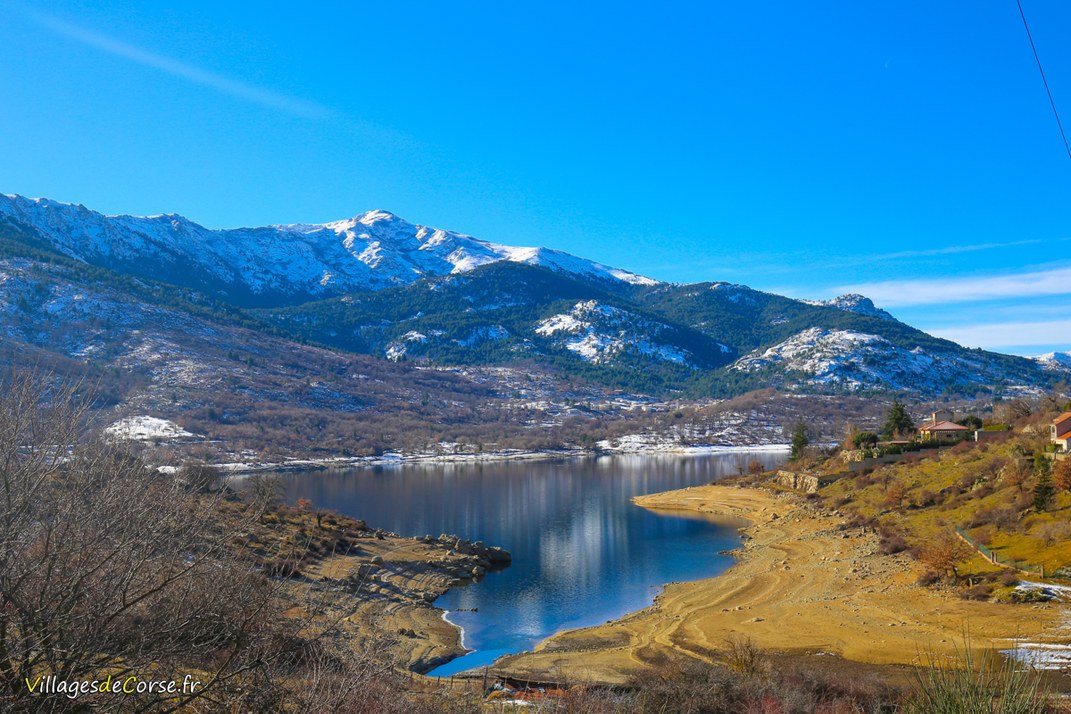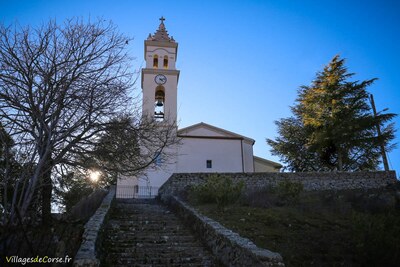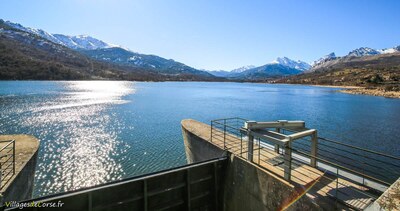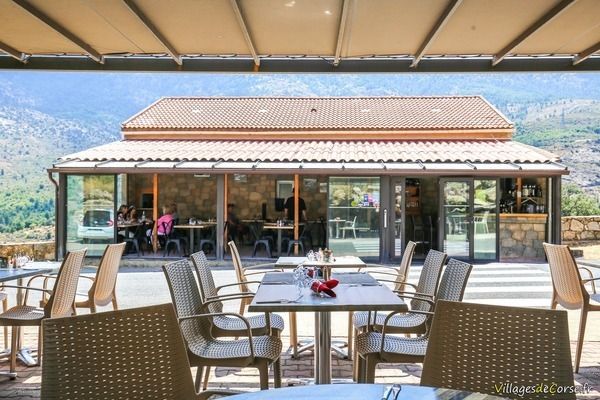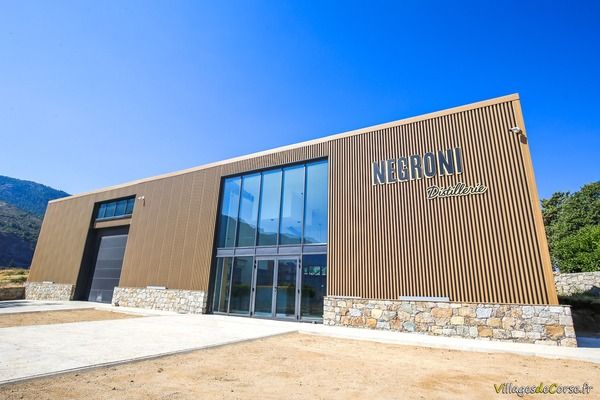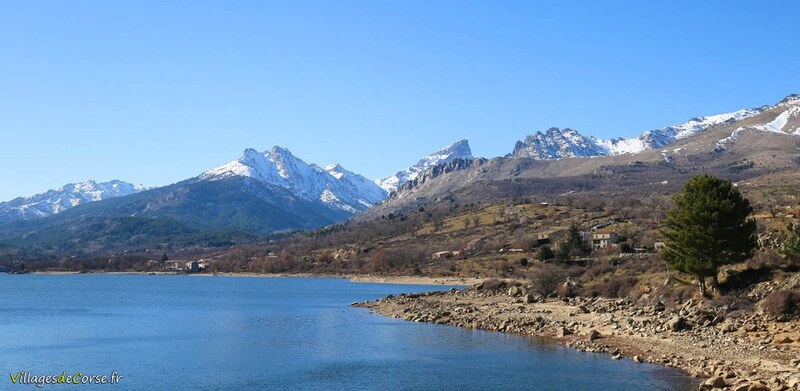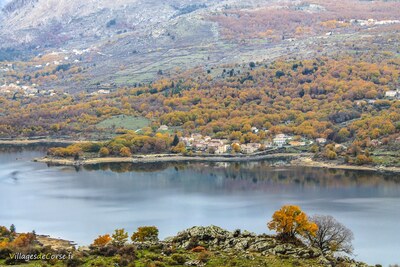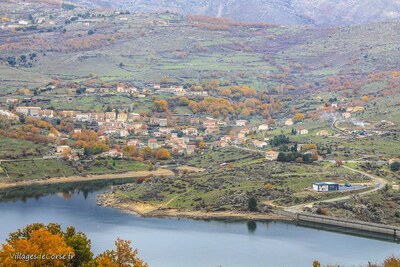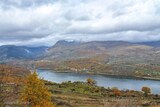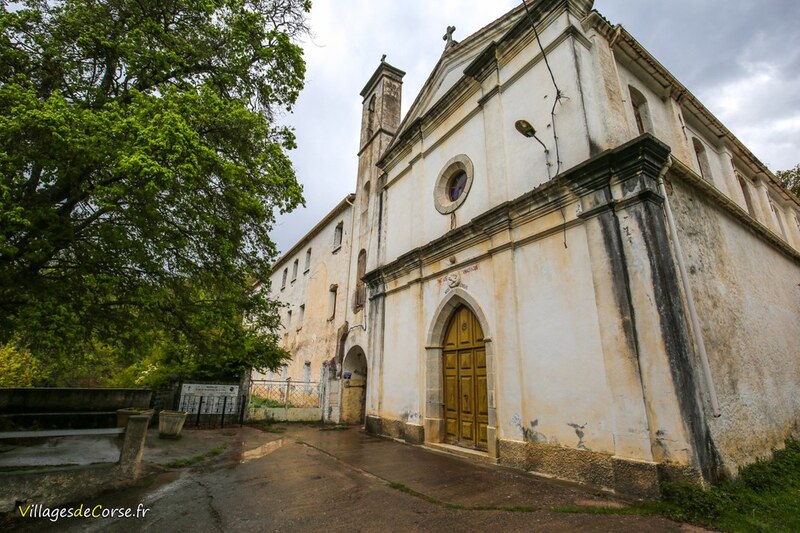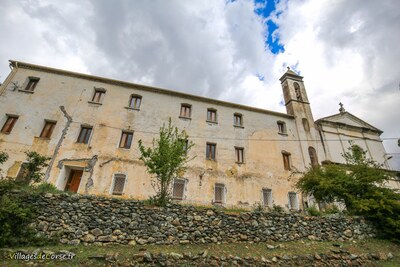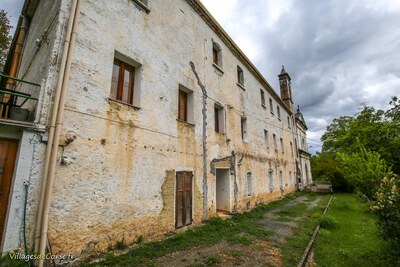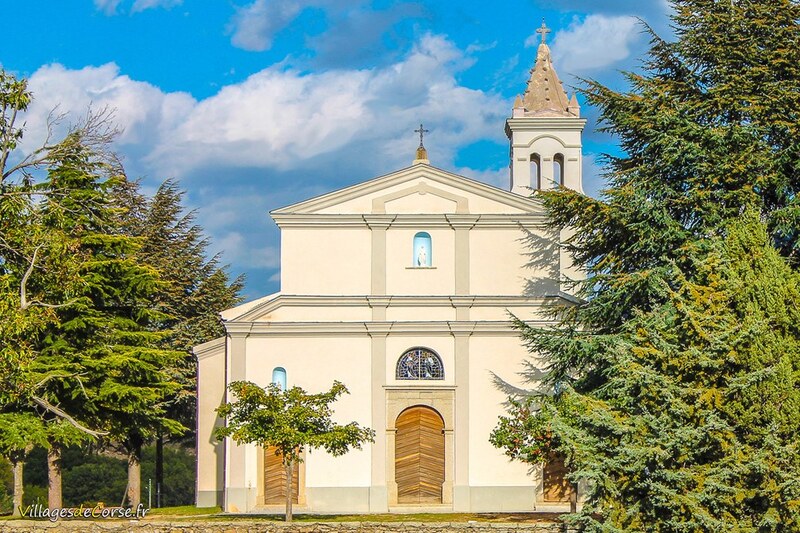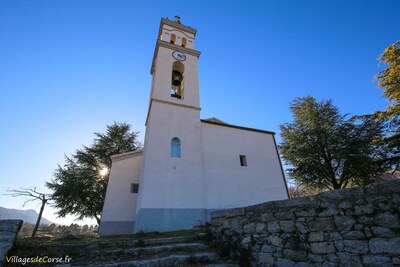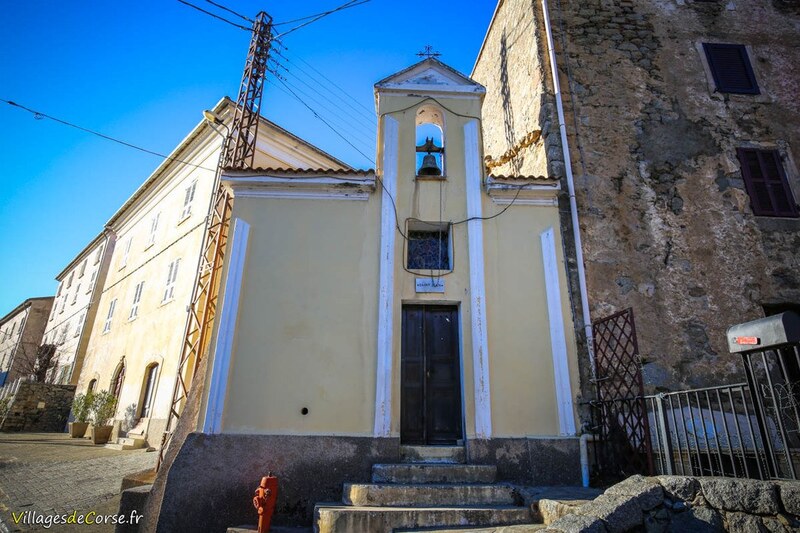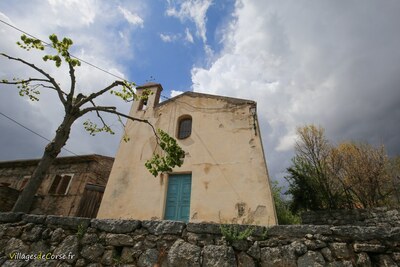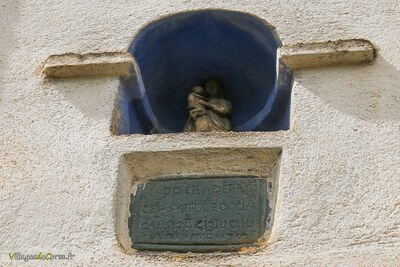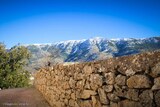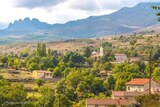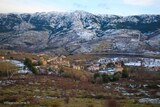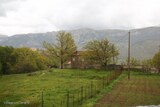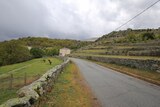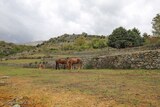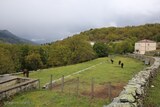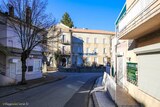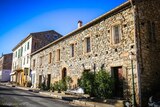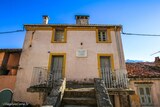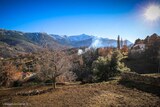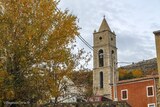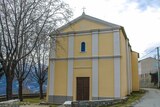Calacuccia: the dam, its religious heritage and its landscapes - Niolu
Calacuccia, 270 PopulationInsee Calacuccia 705 to 1760 meters 1877 hectares
To discover Calacuccia (Niolu) - Google Map
The Calacuccia dam: an energy and landscape turning point for Niolu
Before the dam was built, the valley was particularly fertile, dotted with small orchards, vegetable gardens and family vineyards. The creation of the lake swallowed up this agricultural land, disrupting traditional activities and permanently altering the Niolu landscape.
An emblematic site in the heart of Niolu
Located in the heart of Corsica's Regional Nature Park, Lake Calacuccia is surrounded by the villages of Calacuccia, Casamaccioli, Corscia, Lozzi and Albertacce. It is dominated by emblematic peaks such as Monte Cinto, Paglia Orba and Capu Tafunatu.
A pillar of Corsican hydroelectric production
The Calacuccia dam supplies the Corscia and Castirla hydroelectric power stations. It contributes 57 MW of the 199 MW produced by hydroelectricity in Corsica, i.e. around 10% of the island's electricity consumption.
This energy can be controlled and therefore mobilized on demand, making it a crucial lever in balancing production and consumption on the Corsican grid.
A major project in the 60s
Built between 1965 and 1968 by EDF, the Calacuccia dam is a landmark in Corsican hydroelectric development. Located on the Golo, the island's main river, it has profoundly transformed the Niolu valley, both in terms of energy and the environment.
The structure, with its multiple arches and buttresses, is 74 m high and 265 m long at the crest. It retains a volume of 25.5 million m³ of water, forming Lake Calacuccia (surface area 1,196 km²).
The project mobilized a large number of workers in conditions that were sometimes extreme, particularly due to the high summer temperatures. Frequent explosions were necessary to excavate the site, leaving a lasting mark on the memory of the village's inhabitants.
The Convent of St. Francis of Niolu - San Francescu
A historic building in the heart of Niolu
Located on the right-hand side of the road to Albertacce, just west of Calacuccia, the Couvent Saint-François du Niolu - Cunventu San Francescu - stands out with its bell tower from the opposite shore of the lake. Built in 1600, it has long served as a place of retreat and spiritual rest. Today, it houses a small ethnographic museum displaying the everyday objects of the Niulinchi people of the last century.
A place of memory
On June 25, 1774, as part of the uprising against French occupation, eleven peasants were hanged from the convent's chestnut trees on the orders of General Sionville. The youngest was 17. Among them were two men from Calacuccia: Don Ignaziu Geronimi, 40, from Bonamanacce, and Ghjaseppu Maria Luciani, 38, from Sidossi. A commemorative plaque at the entrance to the convent commemorates this tragic episode.
Restoration and renewal
After several years of closure, the convent was reopened in the spring of 2020 by local parish priest Abbé Léon-Pape, who moved in and undertook its restoration. The aim of the work is to preserve the building from damage caused by water seepage, land movement and animal intrusion, and to breathe new life into this place steeped in history.
Saint-Pierre-et-Saint-Paul Church
Calacuccia parish church
Located at the western end of the village, the Saint-Pierre-et-Saint-Paul church was built in the 18th century on older foundations. Its two-storey bell tower, with a clock and an openwork lantern topped by a cross, dates from the 17th century. Visible from afar, it is a striking visual landmark in the Niolu landscape.
Sober, symmetrical architecture
The main facade, in pure Baroque style, is arranged around a central portal framed by columns and topped by a stained-glass window. Two niches house statues, including one above the pediment, probably dedicated to the Virgin Mary. The whole is framed by classical elements (pilasters, cornices, triangular pediment) giving the building a sober yet imposing harmony.
A popular sculpture of Christ
Inside, the church features a carved wooden Christ, a work of folk art remarkable for the expressiveness of its face. This crucifix testifies to local religious fervor and attachment to a sacred art rooted in Corsican tradition.
A significant double dedication
Dedicated jointly to Saint Peter and Saint Paul, the church celebrates the two founding pillars of the Catholic Church. This dedication reflects the desire to root the parish's identity in apostolic fidelity, echoing the Catholic tradition alive and well in Niolu.
Calacuccia's chapels
Saint-Jean chapel
St. John's chapel features a sober facade framed by white pilasters, topped by a small bell tower with a single bay housing a bell. An inscription above the door attests to its dedication to Saint John. The building has been renovated, but retains a modest, popular appearance.
Chapel of the Immaculate Conception
Located in the hamlet of Sidossi, the Chapelle de l'Immaculée-Conception features an old-fashioned facade with patinated rendering, pierced by an oculus and topped by a bell tower. The blue entrance door contrasts with the light-colored plaster, and a niche houses a statuette of the Virgin and Child. A stone plaque beneath this niche bears an inscription in Latin and Corsican: "Cadd'ella detta Capella Santa Fonda da SGP Gio Domenico..." followed by the date 1702, probably in reference to the founder (Gio Domenico) and the date of consecration or construction. This makes it one of the oldest surviving chapels in the village.
Other chapels in the commune
- Chapelle Sainte-Lucie, in the village, not far from Saint-Jean.
- Chapelle Saint-Michel (18th century), in the hamlet of Bona Manacce.
- Chapel of Saint-Antoine de Padoue, in the hamlet of Castellacce.
- Remains of the Romanesque chapel of Saint-Jean, traces of an older building now in ruins.
Some photos of the village and surrounding area

